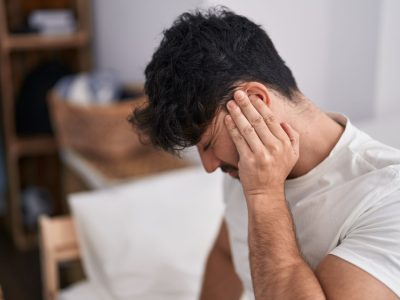Introduction
Have you ever wondered why people with hearing loss often complain about feeling unsteady or dizzy? At first glance, hearing and balance might seem like two completely separate senses, but they’re actually closely intertwined. In fact, the health of your ears plays a big role in keeping you steady on your feet. Especially as we age, this connection becomes even more important to understand because it can directly impact our safety and quality of life.
Let’s dive into the surprising link between hearing loss and balance, explore why it matters, and see how taking care of your ears might help keep you upright and steady.

Understanding the Auditory and Vestibular Systems
Anatomy of the Ear
The ear is more than just the organ of hearing. It’s a marvel of biological engineering that also helps control our sense of balance. The ear has three main parts: the outer ear (what you see), the middle ear (tiny bones that transmit sound), and the inner ear. It’s the inner ear that holds the secret to our balance.
How Hearing and Balance Are Linked Physically
Inside your inner ear are two key players: the cochlea and the vestibular system. The cochlea is the spiral-shaped organ responsible for detecting sounds. Right next to it lies the vestibular system, made up of semicircular canals and otolith organs that sense motion and position. Because these two systems are so close together — and share some of the same fluid and nerves — problems that affect one often impact the other.
How Hearing Loss Can Affect Balance
Impact of Inner Ear Damage
When damage occurs in the inner ear—whether from aging, infections, injury, or other causes—it can affect both hearing and balance. For example, if the hair cells in the cochlea are damaged (leading to hearing loss), nearby vestibular hair cells might also be compromised, causing balance problems.
Vestibular Dysfunction and Hearing Impairment
Research shows that people with hearing loss often have a higher chance of vestibular dysfunction, which means their balance system isn’t working as it should. This can cause dizziness, vertigo, or a feeling of unsteadiness, which increases the risk of falls.
Research Highlighting
A study published in JAMA Otolaryngology found that older adults with hearing loss were significantly more likely to report balance issues and had an increased risk of falls. Another research project revealed that even mild hearing loss can double the risk of falling, highlighting how critical the connection is.
The Aging Factor: Why Older Adults Are More Vulnerable
Age-related Hearing Loss (Presbycusis)
Hearing loss due to aging, called presbycusis, affects nearly one in three adults over 65. It develops gradually and often goes unnoticed until it impacts communication or balance.
Decline in Vestibular Function with Age
Similarly, the vestibular system weakens with age. The number of sensory cells in the inner ear decreases, reducing balance sensitivity. When paired with hearing loss, this creates a perfect storm for balance problems.
Increased Risk of Falls and Injuries
Falls are the leading cause of injury among older adults, often resulting in broken bones or hospital stays. Since hearing loss is linked to poorer balance, it indirectly increases fall risk—a scary prospect but one we can actively work to prevent.
Cognitive Load and Fatigue: The Hidden Effects
How Hearing Loss Increases Mental Effort
Straining to hear puts your brain on overdrive. Instead of effortlessly processing sounds, you’re constantly trying to fill in the blanks, which increases cognitive load.
Impact on Postural Control
This mental fatigue can spill over to physical control. Your brain’s resources are stretched thin, leaving less focus for maintaining posture and balance, especially in challenging environments.
The Role of Dual-task Interference
Imagine walking while trying to follow a conversation or listen carefully—this “dual-tasking” can be tough. For someone with hearing loss, juggling these tasks becomes harder, often leading to a loss of balance.
Real-Life Consequences of Hearing and Balance Issues
Fall Prevention and Safety
Poor balance linked to hearing loss isn’t just a minor nuisance—it’s a serious safety risk. Falls can lead to fractures, head injuries, and a loss of independence.
Quality of Life Implications
Balance problems can make daily activities stressful or impossible, while hearing loss can cause social isolation. Together, they can affect mental health, leading to anxiety or depression.
Emotional and Social Impact
Struggling with hearing and balance often means withdrawing from social situations, missing out on conversations, and feeling disconnected from the world.
Diagnosing Balance Problems Related to Hearing Loss
- Clinical Tests and Assessments Doctors use tests like the Dix-Hallpike maneuver, Romberg test, and vestibular function tests to evaluate balance.
- Hearing Evaluations and Vestibular Testing Audiologists assess hearing loss with pure-tone audiometry, while vestibular testing measures inner ear balance function, sometimes using video or rotary chairs.
- When to See a Specialist If you experience dizziness, frequent falls, or hearing difficulties, it’s important to consult professionals who can identify the root cause.
Treatment and Management Options
Hearing Aids and Balance Improvement
Surprisingly, hearing aids don’t just improve hearing; they may also help with balance by restoring auditory cues that aid spatial orientation.
Vestibular Rehabilitation Therapy
Special exercises can retrain the brain and body to compensate for vestibular dysfunction, improving balance and reducing dizziness.
Lifestyle Adjustments and Fall Prevention Tips
Simple changes like removing trip hazards, using assistive devices, and ensuring proper lighting can make a big difference.
Preventative Measures to Protect Hearing and Balance
Healthy Hearing Habits
Avoid loud noises, use ear protection, and get your hearing checked regularly.
Physical Exercise and Balance Training
Activities like tai chi, yoga, or simple balance exercises strengthen stability.
Regular Check-ups and Early Intervention
Early detection of hearing and balance issues is key to preventing serious complications.
Conclusion
The connection between hearing loss and balance is deeper than most people realize. Our ears don’t just help us hear—they also play a vital role in keeping us steady and safe. Especially as we grow older, maintaining both hearing and vestibular health can significantly reduce the risk of falls, improve cognitive function, and enhance overall quality of life. So, if you or a loved one are experiencing hearing difficulties or balance problems, don’t brush them off. Early diagnosis, treatment, and lifestyle changes can make all the difference.
Frequently Asked Questions
1. What is the vestibular system?
The vestibular system is part of the inner ear that helps control balance and spatial orientation.
2. Can hearing aids help with balance?
Yes, by improving auditory cues, hearing aids can sometimes enhance spatial awareness and balance.
3. Why are older adults more prone to balance issues?
Aging causes degeneration in both hearing and vestibular systems, increasing fall risk.
4. How is hearing loss linked to falls?
Hearing loss often accompanies vestibular dysfunction and cognitive fatigue, both of which impair balance and increase fall risk.
5. When should I get my hearing and balance checked?
If you experience dizziness, unsteadiness, frequent falls, or hearing difficulties, it’s time to see a specialist.



